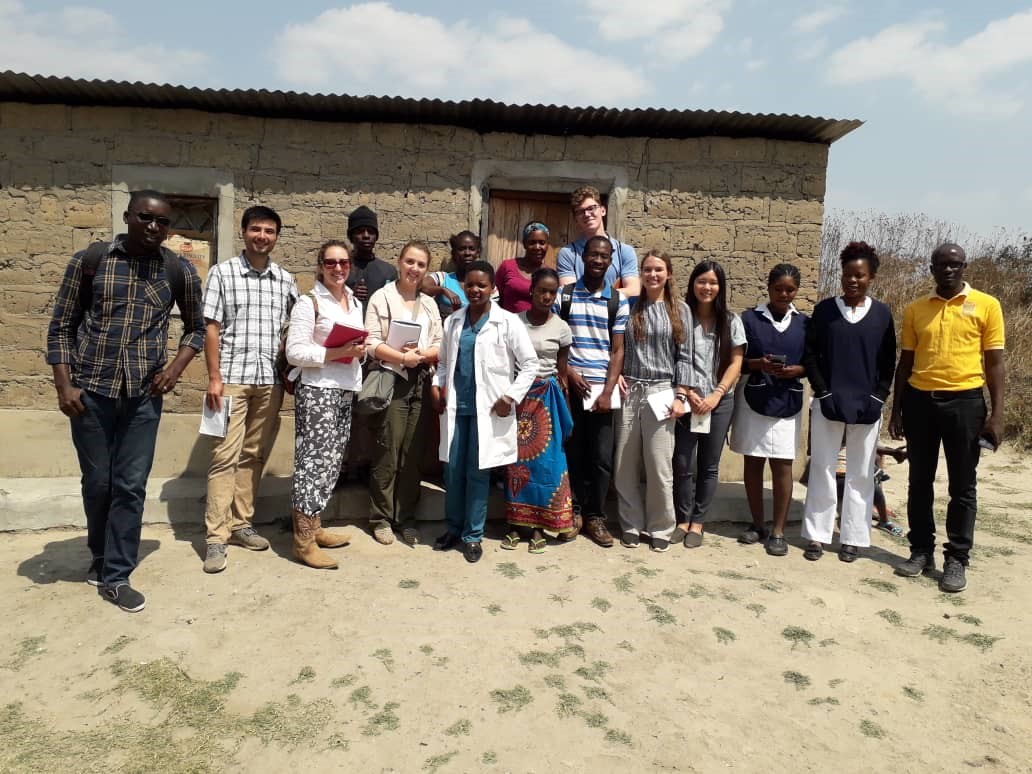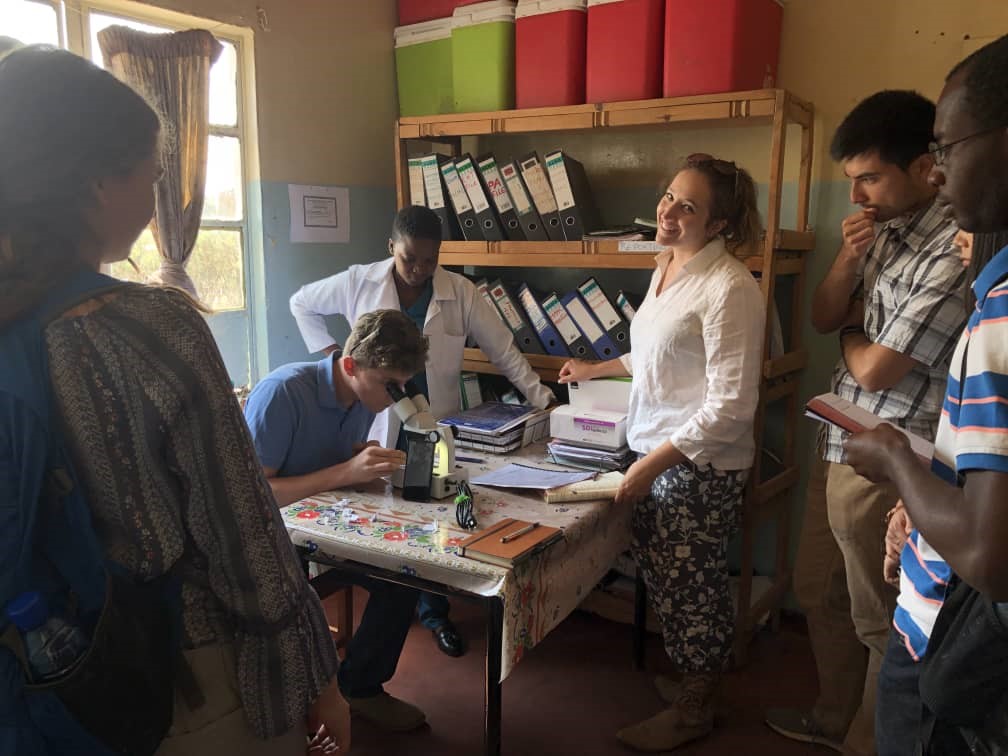PMI VectorLink Zambia Boosts JHU Students’ Entomological Skills.
The U.S. President’s Malaria Initiative (PMI) VectorLink Zambia team recently hosted a group of Johns Hopkins University (JHU) Master of Engineering students for a three-day hands-on entomological training. As part of their biomedical engineering program, the students focused on ways to provide innovative engineering solutions to some of the challenges entomologists face when monitoring and surveilling the Anopheles mosquito, the malaria vector.

The PMI VectorLink Project delivers vector control interventions, protecting millions of people every year from malaria. Entomological monitoring, which is an integral part of the PMI VectorLink Project, enables entomologists to identify which mosquitoes carry malaria, the relative geographical and temporal distribution, along with the feeding and resting habits of these mosquitoes. Monitoring also allows entomologists to determine which insecticides are the most effective at killing the malaria-carrying mosquitoes.
PMI VectorLink Zambia’s technical manager, Mohamed Bayoh, organized a series of lectures on entomology, vector control, and surveillance, and insecticide resistance to provide the students with an understanding of the current trends and challenges in vector control. The team also gave students an overview of the PMI VectorLink Project and the entomological activities currently being conducted in Zambia. Kentzo Mumba, Chief Vector Control Officer at the National Malaria Elimination Center (NMEC), and Reuben Zulu, Principal indoor residual spraying (IRS) Officer, guided the students through an in-depth analysis of Zambia’s unique country context, outlining progress made and challenges faced in implementing vector control and vector surveillance strategies at the national level. The discussion provided relevant information for the students to start thinking about ways to approach the challenges discussed and to think about what kinds of innovative solutions are needed most in vector control and surveillance. The students then toured the local insectary supported and staffed by PMI VectorLink at the NMEC, and saw how the insectary is established and maintained to better understand the role the insectary plays in national malaria elimination.

The visit concluded with a field trip to one of VectorLink’s entomological monitoring sites in Zambia’s Lufwanyama District in Copperbelt Province. VectorLink field entomologist Westone Hamwata guided the students on a tour of the site where they met with community members and health workers and participated in vector surveillance activities. The JHU group also met with VectorLink-trained environmental health technicians and public health personnel from the community who are employed by the Zambian Government. The technicians showed the students how they supervise the mosquito collectors and perform morphological identification of collected mosquito samples. The technicians also gave a live demonstration of the two methods currently used for vector surveillance; pyrethrum spray catches and human landing catches. At the health technician facility, the students were given a crash course on morphological identification, provided copies of the Anopheles identification keys, and by the day’s end, they were able to identify at least one Anopheles species.
In his farewell, Professor Tristan Ford, who accompanied the student group, noted that they had “learned a lot in a few days, and were all very impressed with the support that the PMI and the PMI VectorLink Project provides to the community.”

